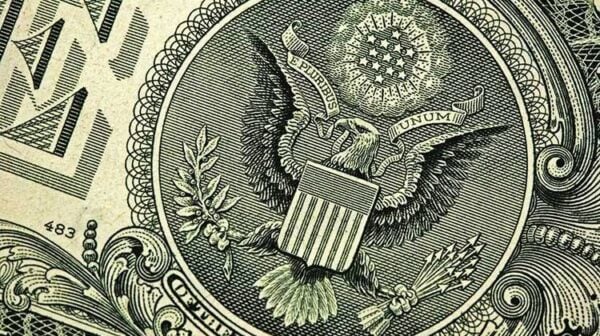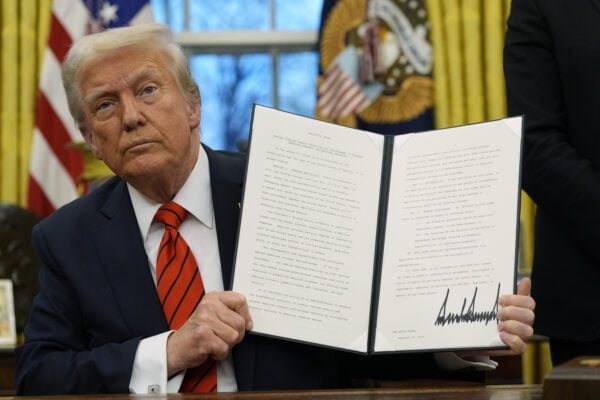Trump is playing three-card monte with the American people and taxpayer money. In the classic street hustle — distract, deceive, extract — the dealer shuffles three cards while the victim or mark tries to follow the Queen.
You never win. The game is designed so the operator controls the outcome, using sleight of hand and accomplices who pretend to win. It’s been illegal in many jurisdictions because it’s fundamentally fraudulent: theft through deception rather than legitimate chance.
Three-card monte isn’t gambling; it’s theater. Trump is the dealer who turned politics into performance art. The cards are policy props — shutdowns, bailouts, dividend checks — and the mark is the American taxpayer, an unwitting audience who thinks they are participating in governance when they are actually watching a con.
The first card: Argentina’s $20 billion bailout
On Oct. 1, 2025, the United States government shut down amid a budget standoff, which both parties justified by claims of fiscal poverty. Just days later, the U.S. Treasury finalized a $20 billion currency swap framework with Argentina’s central bank, backed by the Exchange Stabilization Fund (ESF).
Did the president rob America’s piggy bank to stabilize a foreign country?
The ESF, created in part to 1934 to stabilize the U.S. dollar during crises, allows the executive branch to move funds without prior congressional approval. While the maneuver may be technically legal, its timing and limited disclosure are deeply troubling. How can a government claim insolvency at home while diverting emergency reserves abroad? Deeper still, how will the act affect the American people in the long run?

Despite promises of transparency and accountability, no congressional debate preceded the swap line transfer, and press coverage was limited. In effect, a reserve built to safeguard American financial stability was used to stabilize a foreign government, raising urgent questions about national priorities, fiscal integrity and democratic consent.
The setup: The public watches Democrats and Republicans fight over health care subsidies — a visible, understandable political battle.
The sleight of hand: While 900,000 federal workers are furloughed and 7 million mothers and young children who rely on WIC face losing food assistance, the Treasury Department quietly accesses emergency funds to send $20 billion to Argentina.
The psychology: The public thinks the shutdown is about fiscal responsibility — pick your partisan narrative. Nobody’s watching the emergency fund because both parties have you focused on the visible fight.
Why American farmers should be furious
Argentina is one of America’s biggest agricultural competitors, exporting the same products as American farmers such as soybeans, corn, wheat and beef. When Argentina’s economy crashes and its currency collapses, its exports become cheaper on the global market, giving American farmers a competitive advantage.
Trump’s Treasury Department used $20 billion in emergency funds to stabilize Argentina’s peso, propping up its economy and making its agricultural exports more competitive again, directly undercutting American farmers in global markets. These are the same farmers who voted for Trump because he promised “America First,” suffered through his trade wars with China and depend on government programs that continue to be threatened during the shutdown.

The government claims it can’t afford to pay park rangers or process passport applications, but somehow finds $20 billion in emergency funds for a non-systemic foreign country. And because both parties are busy blaming each other for the shutdown, nobody’s asking: “If we’re in such dire fiscal straits that the government must shut down, where did $20 billion come from?”
If the first card is foreign aid disguised as fiscal prudence, the second flips inward to American families told to tighten their belts and hold their stomachs in while the dealer pockets the pot.
Part two of this series examines who gets paid during the shutdown — and who starves.
LaTasha Boyd Jones, Ph.D.(c) is an award-winning journalist, poet and cultural critic.
LaTASHA BOYD JONES
Tasha Jones is a poet, writer, researcher, and educator whose work explores language as a tool for liberation and resistance. She hosts In the Beginning: The Spoken Word Podcast, the #1 spoken word podcast on Apple and Spotify. Tasha is also the Poems & Parables Literary Journal editor and is currently writing Pyramids. Plantations. Projects. Penitentiaries. You can follow her on social media: @iamtashajones, @itbspokenwordpod, and @poemsandparables.








